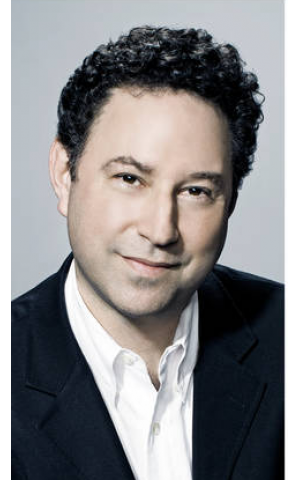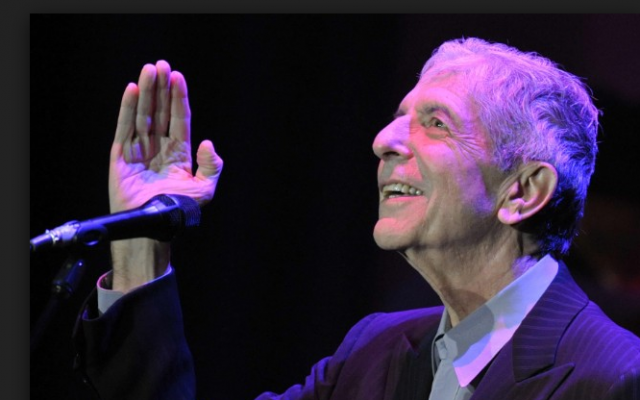Exploring the Meaning of ‘Hallelujah’
Leonard Cohen’s “Hallelujah” has been recorded by so many singers over so many years, that many have forgotten its origins.
It is among the most popular songs of the past half century, a poetic hymn, based in part on the biblical story of King David, that has been sung in such diverse settings as the opening of the Vancouver Winter Olympics, the animated film hit “Shrek” and by Madonna last year in the hallowed halls of The Metropolitan Museum of Art in New York.
Leonard Cohen’s “Hallelujah” has been recorded by so many singers over so many years, that many have forgotten its origins.
Now, Temple Sinai and the Atlanta Jewish Music Festival have invited music critic and author Alan Light to discuss the complex and often obscure work. Light, who is Temple Sinai’s Scholar in Residence next Shabbat, will speak on “Unlocking the Mystery of Hallelujah.”
His book, “The Holy or the Broken” is a full-blown study of the song’s path to widespread success and the life of its composer, who was born into a prominent Jewish family in Montreal.
I spoke with Light recently about the song’s inauspicious beginnings and how it came to be such a beloved part of the American songbook.
AJT: What happened to this song when it was first recorded?
Light: The story of “Hallelujah” is a story of an unprecedented journey from absolute obscurity. It’s was one of the songs recorded for an album his label rejected. It was the only time that ever happened to him. This was a song that not only didn’t get noticed, it didn’t even register. Then over time there were hundreds and hundreds of versions and it was embraced all around the world in all of these different ways.
There’s a mutability, there’s an adaptability to this song and Leonard sanctioned that. You can make it a song that’s very much about perseverance or triumph or you can make it a song that’s very much about heartbreak and loss.
It can ultimately be melancholy, or it can be transcendent. And I think that enabled it to function in a very different way than a lot of those kinds of songs, those kind of big songs that connect so universally.

AJT: But it doesn’t seem very much like those other big songs.
Light: When you think about other songs that are like it, like John Lennon’s “Imagine” or Sam Cooke’s “A Change is Gonna Come,” the original always comes to mind. How it’s the same or how it’s different. But that’s not so with “Hallelujah.” Most people don’t know the original. Most people don’t even know the things that started to popularize it; they just came in somewhere as this snowball sort of went downhill.
And that allowed people to play it at weddings and funerals. They played it when their kids were born. They played it when their uncle passed away. They played it at moments of greatest joy and of greatest sorrow. It was able to fit in all of those of scenarios because Leonard Cohen, at a certain point, just let it go and allowed it to take whatever life it was going to take and that was OK. It didn’t necessarily have to be about one thing. There are lots of [versions of “Hallelujah.”] And I think that part of it ultimately pleased him very much.
AJT: Do you think we’ll ever know what it means?
Light: Well I think, in some ways, we all know what it means. Well, we all know what it means to us and that’s what it means. I mean many of these songs, once they’re released into the world, they take on a different life.
That may be what the writer intended or not. So I think that people continue to find layers and continue to find power in it. You know when I talked to Paul Simon he said “Bridge Over Troubled Water” was that song that had so much appeal. For a while it was played at state funerals or big moments or whatever, then “Hallelujah” kind of took that spot. And you know, so far nothing has happened to change that. It’s kind of the one in pole position right now.
AJT: So even though Leonard Cohen died three years ago, he seems more formidable than ever.
Light: As you work deeper through what’s there, you see the precision and concision of that language, of that writing, of that imagery. There’s not really another comparable songwriter.
There’s obviously that strata of the great, triple A-plus writers like Bob Dylan or Joni Mitchell, the people who you talk about when you talk about the masters of this kind of writing. But there is something that is so distinctive about the use of language and the control in Leonard’s work that it just stands out in such sharp relief.
Alan Light speaks on “Unlocking the Mystery of Hallelujah” at 7:30 p.m. Saturday, March 16, at Temple Sinai in Sandy Springs. For more information, www.templesinaiatlanta.org.




comments